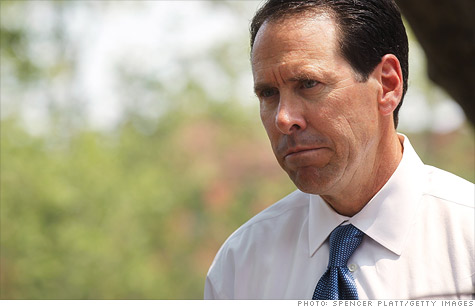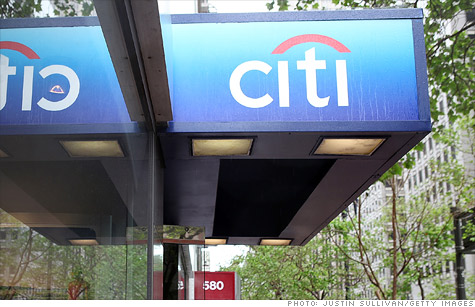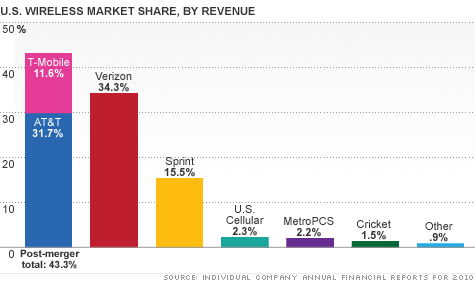November 30, 2011, 2:38 PM EST By Shobhana Chandra and Bob Willis
(Updates with Fed Beige Book in seventh, eighth paragraphs.)
Nov. 30 (Bloomberg) -- Companies boosted payrolls in November by the most this year and U.S. businesses expanded at the fastest pace in seven months, giving the economy a lift as 2011 draws to a close.
Private employment, which excludes government jobs, climbed 206,000 this month, according to data today from Roseland, New Jersey-based ADP Employer Services. The Institute for Supply Management-Chicago Inc.?s business barometer increased to 62.6 in November from 58.4 the prior month as orders and production strengthened.
?Things are shifting in the right direction for a faster pace of growth next year,? said Carl Riccadonna, a senior U.S. economist at Deutsche Bank Securities Inc. in New York. ?New orders are rising, production is increasing and employment will likely improve.? In addition, ?central banks are taking the right steps,? he said.
Stocks soared as six central banks including the Federal Reserve acted to make more funds available to lenders to preserve the global expansion in the wake of Europe?s sovereign debt crisis. Another report showed the biggest gain in home- purchase contract signings in a year, adding to evidence the world?s largest economy is withstanding the European slowdown.
The Standard & Poor?s 500 Index climbed 3.2 percent to 1,233.9 at 2:14 p.m. in New York. The yield on the benchmark 10- year Treasury note rose to 2.07 percent from 1.99 percent late yesterday.
Jobs Report
Economists project the Labor Department to report in two days that private employment rose 150,000 in November, according to the median projection in a Bloomberg News survey.
The Fed today said the economy expanded at a ?moderate? pace in 11 of its 12 districts, led by gains in manufacturing and consumer spending.
The report reinforces the central bank?s view that the economy, while strong enough to skirt a recession, remains too weak to bring down an unemployment rate stuck near 9 percent or higher for more than two years. At their last meeting Nov. 1-2, some Fed policy makers said the central bank should consider easing policy further, according to minutes of the meeting.
Last month?s initial ADP figures showed a 110,000 gain, while the Labor Department?s data showed an increase of 104,000 in private payrolls for October. Today, ADP revised the October figure to a gain of 130,000.
German Unemployment
German unemployment dropped more than forecast in November as companies? resilience to the euro area?s debt woes showed no sign of cracking. The number of people out of work fell a seasonally adjusted 20,000 to 2.91 million, the Nuremberg-based Federal Labor Agency said today. The adjusted jobless rate dropped to 6.9 percent.
Companies in Europe?s largest economy are adding workers even as the region?s worsening fiscal crisis clouds growth prospects. While Jim O?Neill, chairman of Goldman Sachs Asset Management, said today the euro-area economy may already be in a recession, German business confidence rose in November and consumers also became more optimistic.
Stronger job growth in the U.S. will make it easier to sustain the recent gain in consumer spending, which accounts for about 70 percent of the economy.
?Things are getting better for the economy,? said Robert Brusca, chief economist at Fact & Opinion Economics in New York, who projected an ADP payroll gain of 160,000. ?It means the news we have on Christmas shopping and on an increase in consumer confidence may have some validity.?
Holiday Sales
Online sales increased more than 20 percent on Cyber Monday from a year earlier as consumers flocked to the Internet to make holiday purchases, researchers found. Revenue jumped 33 percent, according to International Business Machines Corp., while ComScore Inc. put the increase at 22 percent.
Williams-Sonoma Inc., a retailer of high-end home goods, raised its annual profit forecast and will ?continue to look for a few key jobs? in online sales, Chief Executive Officer Laura Alber said in a Nov. 17 conference call with analysts.
A pickup in consumer spending and more business investment at a time when companies are holding fewer inventories may help set the stage for stronger production.
Readings above 50 in the Chicago purchasers? measure signal growth and this month?s figure exceeded the highest estimate in the Bloomberg survey. Economists forecast the gauge would rise to 58.5, according to the median of 56 estimates. Projections ranged from 56 to 60.7.
More Production, Orders
The Chicago group?s production gauge increased to a seven- month high and the gauge of new orders rose to the highest level since March. The employment measure eased.
Economists watch the Chicago index and other regional manufacturing reports for an early reading on the national outlook. The Chicago group says its membership includes both manufacturers and service providers with operations in the U.S. and abroad, making the gauge a measure of overall growth.
The ISM?s national factory index climbed in November to 51.8 from 50.8 the prior month, according to the median projection in a Bloomberg survey ahead of the group?s report tomorrow. Like the Chicago survey, a reading greater than 50 signals expansion.
Caterpillar Inc., the world?s largest construction and mining-equipment maker, last month announced higher-than- expected third-quarter profit and sales, reinforcing forecasts that exports and capital spending will help the U.S. maintain its economic expansion.
While the European debt crisis and the level of U.S. growth are concerns, they don?t ?signal the onset of recession,? Caterpillar said in a statement.
The housing market may be starting to thaw. The National Association of Realtors today said its index of pending home sales increased 10.4 percent, the most since November 2010, after falling 4.6 percent the previous months.
--With assistance from Chris Middleton in Washington. Editors: Vince Golle, Carlos Torres
To contact the reporter on this story: Bob Willis in Washington at bwillis@bloomberg.net; Shobhana Chandra in Washington at schandra1@bloomberg.net
To contact the editor responsible for this story: Christopher Wellisz at cwellisz@bloomberg.net.

 Almost all of us have some assets worth insuring -- our homes, our cars, our health. But the insurance business goes far beyond the basics. If your possessions are worth a bit more, you might have separate policies for your jewelry or art. Businesses take out insurance to protect their executives against lawsuits. And when they consider certain employees to be vital to their bottom lines, they may even take out life insurance policies on them.
Almost all of us have some assets worth insuring -- our homes, our cars, our health. But the insurance business goes far beyond the basics. If your possessions are worth a bit more, you might have separate policies for your jewelry or art. Businesses take out insurance to protect their executives against lawsuits. And when they consider certain employees to be vital to their bottom lines, they may even take out life insurance policies on them.  This Black Friday, here are a few things to whet your bargain-hunting "app"-etite: 5 mobile apps designed to help you nab deals during the holiday weekend shopping bonanza.
This Black Friday, here are a few things to whet your bargain-hunting "app"-etite: 5 mobile apps designed to help you nab deals during the holiday weekend shopping bonanza. 
